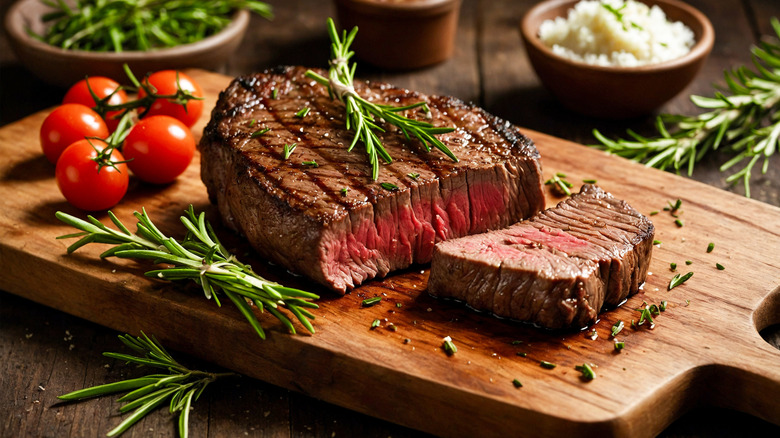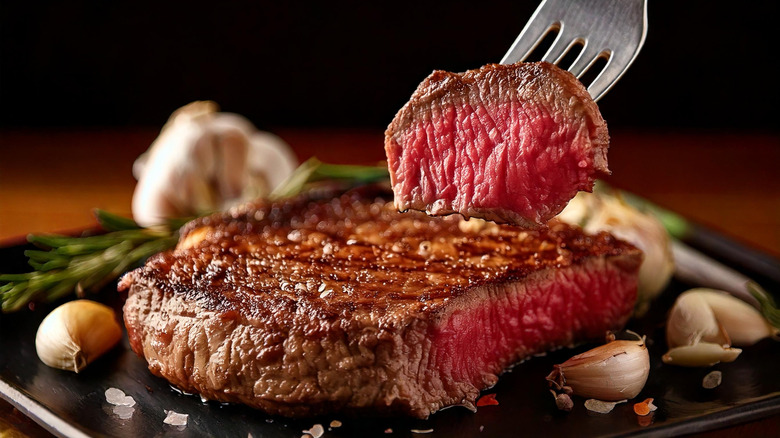Should You Really Be Letting Grilled Steak Rest?
Among steak lovers, it's pretty much common knowledge that resting a steak after cooking equals a juicier cut of steak. But there are some who push back on that notion. Their take on the issue is that the difference in the amount of juice is minuscule, which isn't a big enough amount to justify the possible downside – an overcooked steak. However, to be fair, some dissection of this argument may be in order to get to the bottom of why not letting the meat sit is actually the best way to go.
To understand the argument against letting your steak rest, you first need to know a bit more about carry-over cooking. Proponents of carry-over cooking assume that a piece of meat continues to cook after it's removed from the flame. Despite it not being exposed to a source of heat any longer, the heat that remains inside the steak is enough to complete the cooking process.
However, the heat from carry-over cooking does something else: it makes the steak way more juicy. The juices that were on the steak's outer "layers" get pushed farther into the meat. This changes the structure of the muscle fibers within the meat, encouraging the juices to sink further down into the depths of the muscle fibers, distributing the juices more evenly throughout the meat in the process.
Why this isn't as important as it seems
The idea of losing some of the juice from this process disturbs many dyed-in-the-wool steak aficionados. But the loss is nothing, really – only about a teaspoon or so. And technically, since the juice from the steak still ends up on your plate and your fork pushes your steak bites through all that au jus, you're not really missing out on any of the moisture you hoped to get from letting your steak rest.
Aside from this, going this route encourages you to eat the steak right as it comes off the grill or stove, all piping hot and delish and possibly even slightly caramelized due to the effects of the Maillard reaction on the meat's exterior. It's also going to be at the exact temperature at which you want to eat the steak.
Finally, when you let the meat sit in the name of a juicier steak, you also run the risk of having an overcooked steak, at least overcooked to the extent that it's more done than you wanted it to be when you first threw it on the grill. This is a big deal if you're jonesing for a rare or medium-rare steak, but get a medium or even done steak because you let it sit too long. So, in the name of all that's just the right amount of juicy, don't let that steak sit. Eat it immediately.

